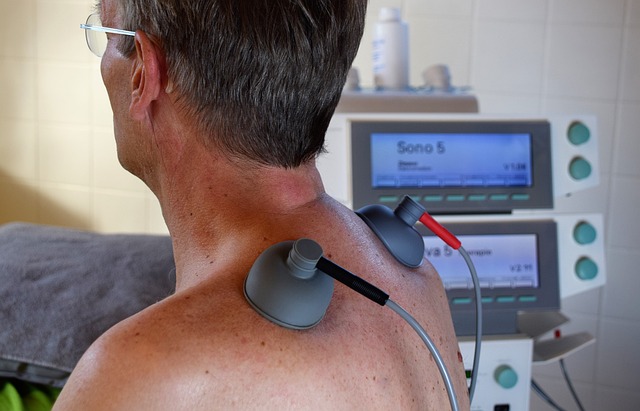Student stress, caused by academic pressures and personal factors, can lead to physical and mental health issues. Recognizing these effects is crucial for encouraging students to access stress relief therapies like mindfulness meditation, deep breathing exercises, cognitive-behavioral therapy (CBT), regular exercise, adequate sleep, balanced diet, and hydration. These methods improve time management, build resilience, and enhance academic performance while maintaining a healthy balance. Professional counseling services offer CBT, tailored coping strategies, and a safe space to discuss concerns, ultimately providing effective stress relief therapy.
“Student life is often a rollercoaster of exams, assignments, and social pressures, leaving many grappling with overwhelming stress. This article delves into comprehensive strategies for managing this prevalent issue. We explore the root causes and far-reaching effects of student stress, offering practical lifestyle changes, evidence-based therapies like Cognitive Behavioral Therapy (CBT), mindfulness practices, and the vital role of physical activity in stress relief. Additionally, we highlight when seeking professional help through counseling and therapies is essential for enduring stress relief.”
Understanding Student Stress: Causes and Effects

Student stress is a prevalent issue that can stem from various sources, impacting academic performance and overall well-being. Understanding the causes and effects is the first step in managing it effectively. Academic pressures, such as deadlines, exams, and heavy workloads, are common stressors. Additionally, personal factors like time management skills, financial worries, or family obligations can contribute to a student’s stress levels. The impact of chronic stress may include physical symptoms like headaches or fatigue, as well as mental health issues such as anxiety and depression. It can hinder concentration, decision-making abilities, and even lead to avoidance of academic tasks.
Recognizing these effects is crucial in encouraging students to seek stress relief therapy. Techniques such as mindfulness meditation, deep breathing exercises, and cognitive-behavioural therapy have proven effective in managing stress. These therapies provide tools to cope with demanding situations, improve time management, and enhance overall resilience, allowing students to thrive academically while maintaining a healthy balance.
Lifestyle Changes for Effective Stress Management

Many students turn to stress relief therapy as a way to cope with academic pressures and demanding schedules. While professional therapy is a valuable option, making lifestyle changes can also significantly reduce stress levels. Regular exercise, for instance, releases endorphins that act as natural painkillers and mood elevators, promoting better mental health. Adequate sleep is another crucial factor; aiming for 7-9 hours nightly allows the body to rest and recharge, enhancing focus and energy during waking hours.
Diet also plays a role in stress management. Incorporating nutrient-rich foods like fruits, vegetables, lean proteins, and whole grains can improve overall well-being. Staying hydrated by drinking enough water is essential for cognitive function and physical health. Additionally, practicing mindfulness techniques such as meditation or deep breathing exercises can help students stay grounded, reduce anxiety, and improve their ability to manage stressful situations effectively.
Cognitive Behavioral Therapy (CBT): A Powerful Tool

Cognitive Behavioral Therapy (CBT) is a highly effective stress relief therapy for students dealing with overwhelming pressure and anxiety. This evidence-based approach focuses on identifying and changing negative thought patterns and behaviors that contribute to stress. By challenging distorted thinking, CBT equips students with healthier coping mechanisms, enabling them to manage their symptoms more effectively.
One of the key advantages of CBT is its ability to empower individuals with practical tools for navigating stressful situations. Through structured sessions, students learn to recognize triggers, understand the connection between thoughts, feelings, and behaviors, and develop alternative strategies to respond to challenging circumstances. This process fosters resilience, enhances emotional well-being, and promotes a more balanced perspective, making it an invaluable resource for managing student stress.
Mindfulness and Meditation Techniques for Relaxation

Mindfulness and meditation have emerged as powerful tools for students seeking effective stress relief therapy. These practices encourage individuals to focus on the present moment, fostering a sense of calm and clarity. By dedicating just a few minutes each day to mindfulness exercises, students can learn to observe their thoughts without judgment, reducing the impact of stressful situations.
Meditation techniques vary but often involve deep breathing, progressive muscle relaxation, or guided visualizations. These practices help to regulate emotions, lower blood pressure, and reduce anxiety levels. Incorporating mindfulness into daily routines allows students to navigate their academic pressures with enhanced resilience, improving both mental well-being and overall performance.
Physical Activity and Its Role in Stress Relief

Physical activity is an effective stress relief therapy that can significantly help students manage their academic pressures. Engaging in regular exercise, such as walking, jogging, swimming or team sports, releases endorphins—neurotransmitters known for promoting feelings of happiness and relaxation. This natural process acts as a powerful antidote to stress hormones like cortisol, helping to reduce anxiety levels and improve overall well-being.
Incorporating physical activity into daily routines can be as simple as taking a brisk walk during breaks or joining an after-school sports team. Such activities not only provide a mental break but also enhance cognitive function, boost memory retention, and improve concentration—all crucial for academic success. By prioritizing movement, students can cultivate a healthier mindset and develop long-term stress management strategies that will serve them well beyond their student years.
Seeking Professional Help: Counseling and Therapies

Many students, despite their best efforts, may find that their stress levels are overwhelming and impacting their daily lives. In such cases, seeking professional help can be a game-changer in managing and alleviating stress. Counseling services offer a safe space for students to openly discuss their concerns and learn coping strategies tailored to their needs.
Therapies like cognitive-behavioral therapy (CBT) are effective tools for stress relief. CBT helps individuals identify and change negative thought patterns, replacing them with healthier alternatives. This approach empowers students to manage stress proactively by understanding the connection between thoughts, feelings, and behaviors. Professional guidance provides a supportive network, enabling students to navigate their academic pressures more effectively.
